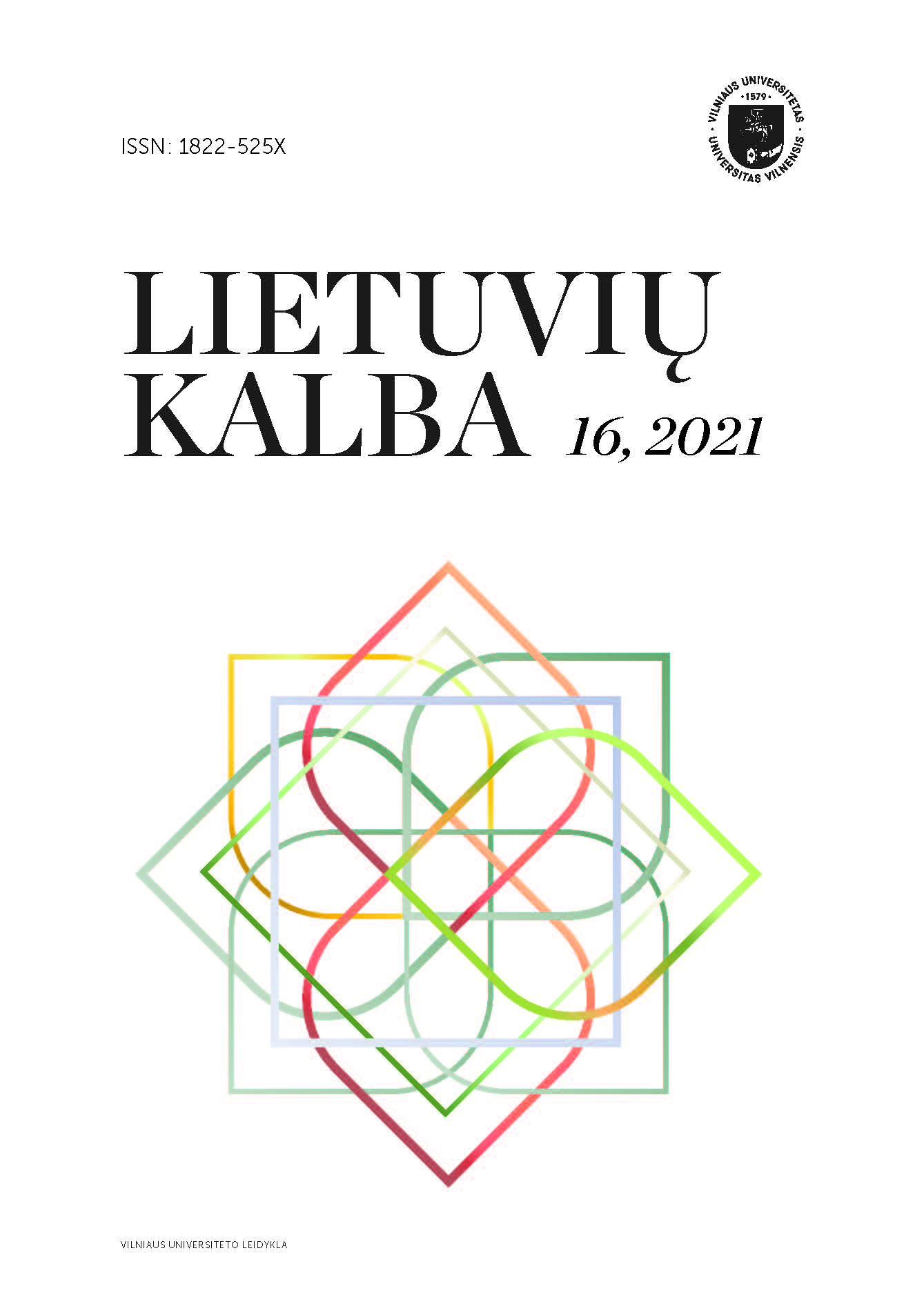Lietuvių kalba
Lithuanian Language
Publishing House: Vilniaus Universiteto Leidykla
Subject(s): Language and Literature Studies
Frequency: 1 issues
Print ISSN: 1822-525X
Online-ISSN: 1822-525X
Status: Active
- 2007
- 2008
- 2009
- 2010
- 2011
- 2012
- 2013
- 2014
- 2015
- 2016
- 2017
- 2018
- 2019
- 2020
- 2021
- 2022
- 2023
- 2024
- Issue No. 1
- Issue No. 2
- Issue No. 3
- Issue No. 4
- Issue No. 5
- Issue No. 6
- Issue No. 7
- Issue No. 8
- Issue No. 9
- Issue No. 10
- Issue No. 11
- Issue No. 12
- Issue No. 13
- Issue No. 14
- Issue No. 15
- Issue No. 16
- Issue No. 17
- Issue No. 18
- Issue No. Supplement
- Issue No. 19
Articles list
{{ article.TitleOriginalLanguage }}
{{ article.TitleOriginalLanguage }}
({{ article.TitleEnglish }})
- Publication: {{ article.Publisher }} ({{ article.Issue }})
- Author(s): {{ article.Authors }}
- Contributor(s): {{ article.Contributors }}
- Language: {{ article.Language }}
- Subject(s): {{ article.Subjects }}
- Issue: {{ article.Issue }}
- Page Range: {{ article.PageRange }}
- No. of Pages: {{ article.NumberOfPages }}
- Keywords: {{ article.Keywords }}
- Summary/Abstract: {{ article.SummaryAbstract }}
- Price: {{ common.currency(article.Price) }}
Short Description
Focus and scope. Lietuvių kalba (‘The Lithuanian Language’) is an international peer-reviewed linguistic journal that publishes research on all core aspects of the Lithuanian language including phonetics and phonology, morphology and syntax, lexis and discourse, semantics and pragmatics.
The journal welcomes contributions that present empirical findings, as well as those that discuss theoretical issues or report on the development of methodological frameworks. Proceedings of conferences are also invited.
Lietuvių kalba publishes research articles, theoretical articles, critical book reviews and review articles. Lietuvių kalba is an online-only journal that appears annually and regularly.
The journal publishes articles in English, French, German, Lithuanian and Russian.
Publication frequency - one volume per year.
Languages. The journal accepts articles in Lithuanian, English, French, German and Russian.
Charges. The journal does not charge article processing charges or submission charges.
Indexed in:
CEEOL since 2007, ERIH PLUS since 2016, EBSCOhost (per MLA) since 2007, DOAJ (since 2016), Dimensions, Gale (per MLA) since 2007, Google Scholar (h5-index 3; h5-median 5), Linguistic Bibliography (Online) (Brill) since 2007, Lituanistika since 2007, MLA Directory of Periodicals since 2007, MLA International Bibliography since 2007, ROAD (since 2013), Primo Central (ExLibris) (via MLA) since 2007, ProQuest (via MLA) since 2007, Ulrichs Web since 2011, Linguistics Abstracts Online since 2007.
We are member of the Initiative for Open Citations (i4OC) which is a multi-stakeholder project to make scholarly citation data openly available to enable the creation of new and better metrics.
We are members of the The Initiative for Open Abstracts (I4OA) which is a collaboration between scholarly publishers, infrastructure organizations, librarians, researchers and other interested parties to advocate and promote the unrestricted availability of the abstracts of the world's scholarly publications, particularly journal articles and book chapters, in trusted repositories where they are open and machine-accessible.
The journal is a participant of Open Archives Initiative. The Open Archives Initiative Protocol for Metadata Harvesting (OAI-PMH) is a low-barrier mechanism for repository interoperability.
Journal History. Lietuvių kalba ('The Lithuanian Language') was established after receiving a grant from The Lithuanian State Science and Studies Foundation (2006–2007) for the scientific project “Electronic science journal The Lithuanian Language.” Project partners included Vilnius University, Klaipėda University, and the Institute of the Lithuanian Language. The first issue of the journal was released during the second year of the project (in 2007) and contained five articles. The first Editor-in-Chief of the journal was Associate Professor Antanas Smetona (2007 – November 07, 2008), succeeded by Associate Professor Artūras Judžentis (November 07, 2008 – January 04, 2013). The present Editor-in-Chief is Professor Irena Smetonienė, approved by Vilnius University Senate Resolution No SK-2013-7-5.

